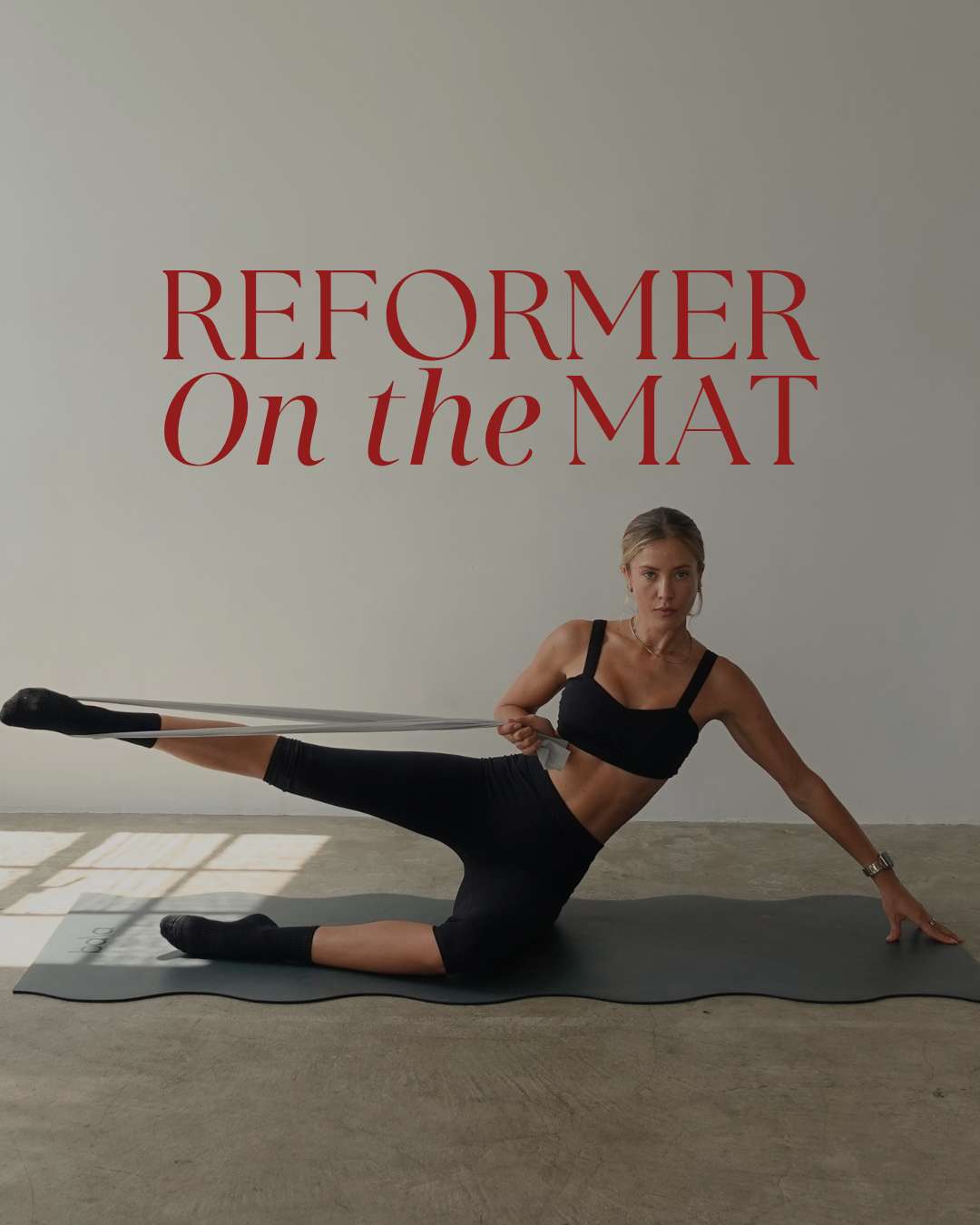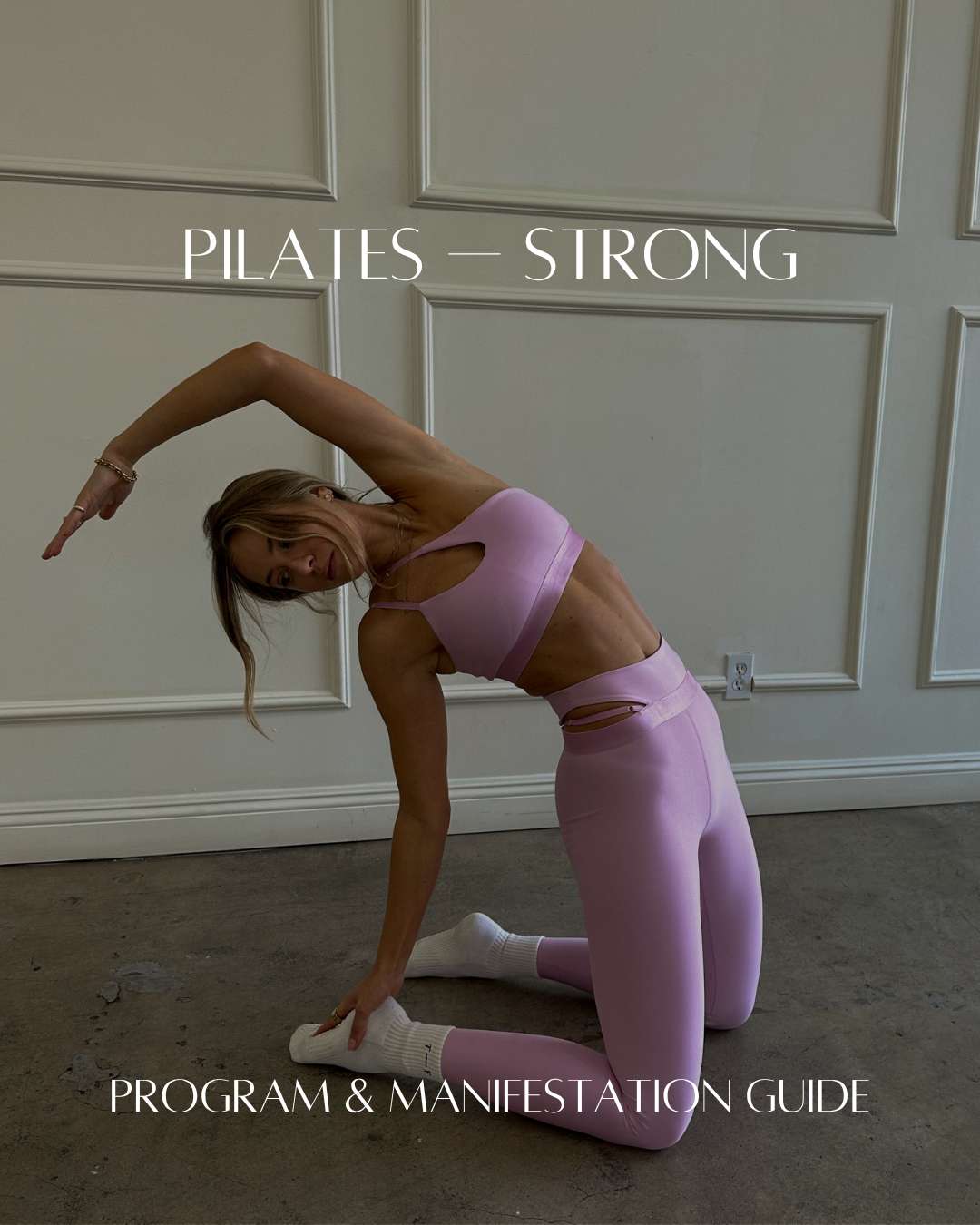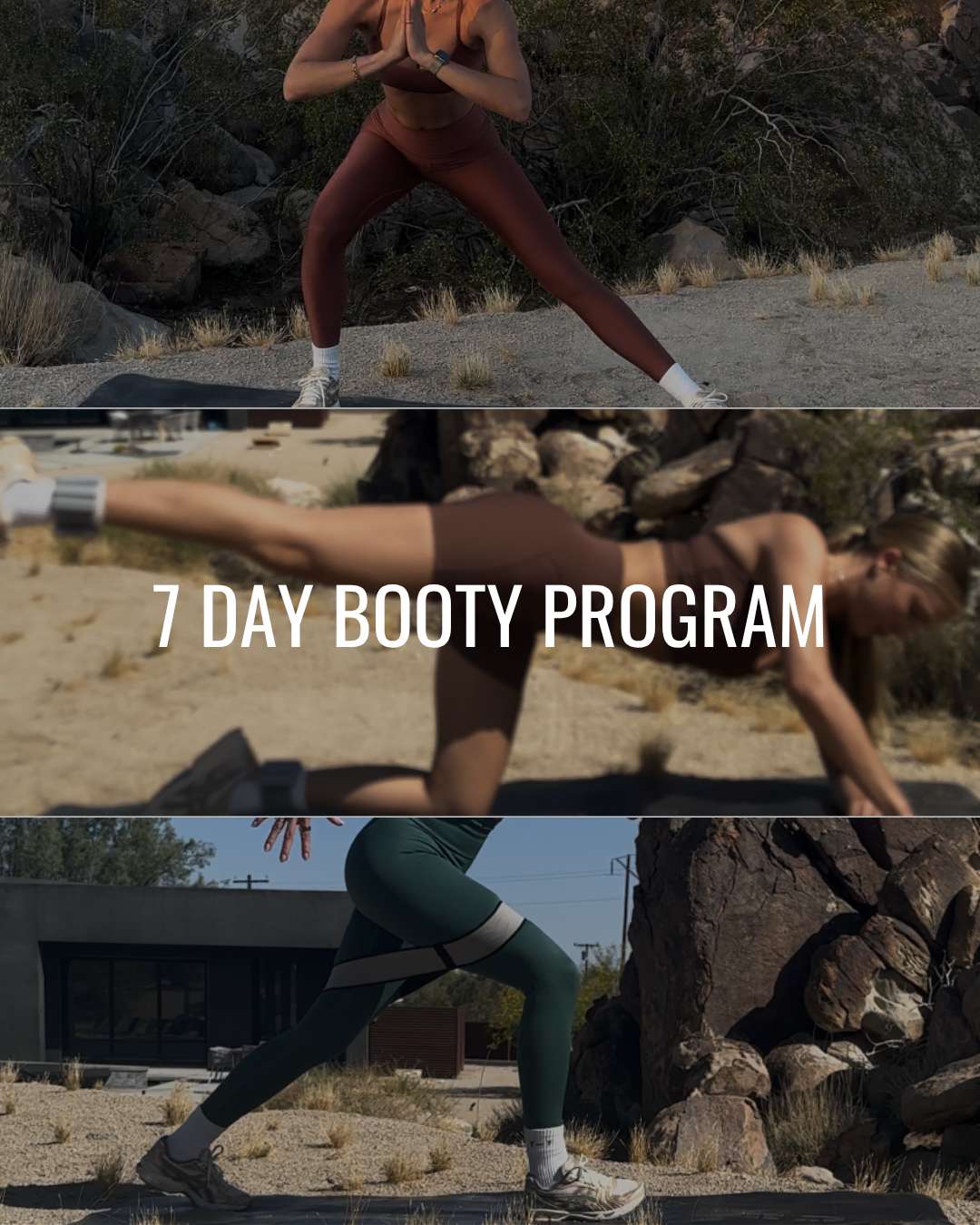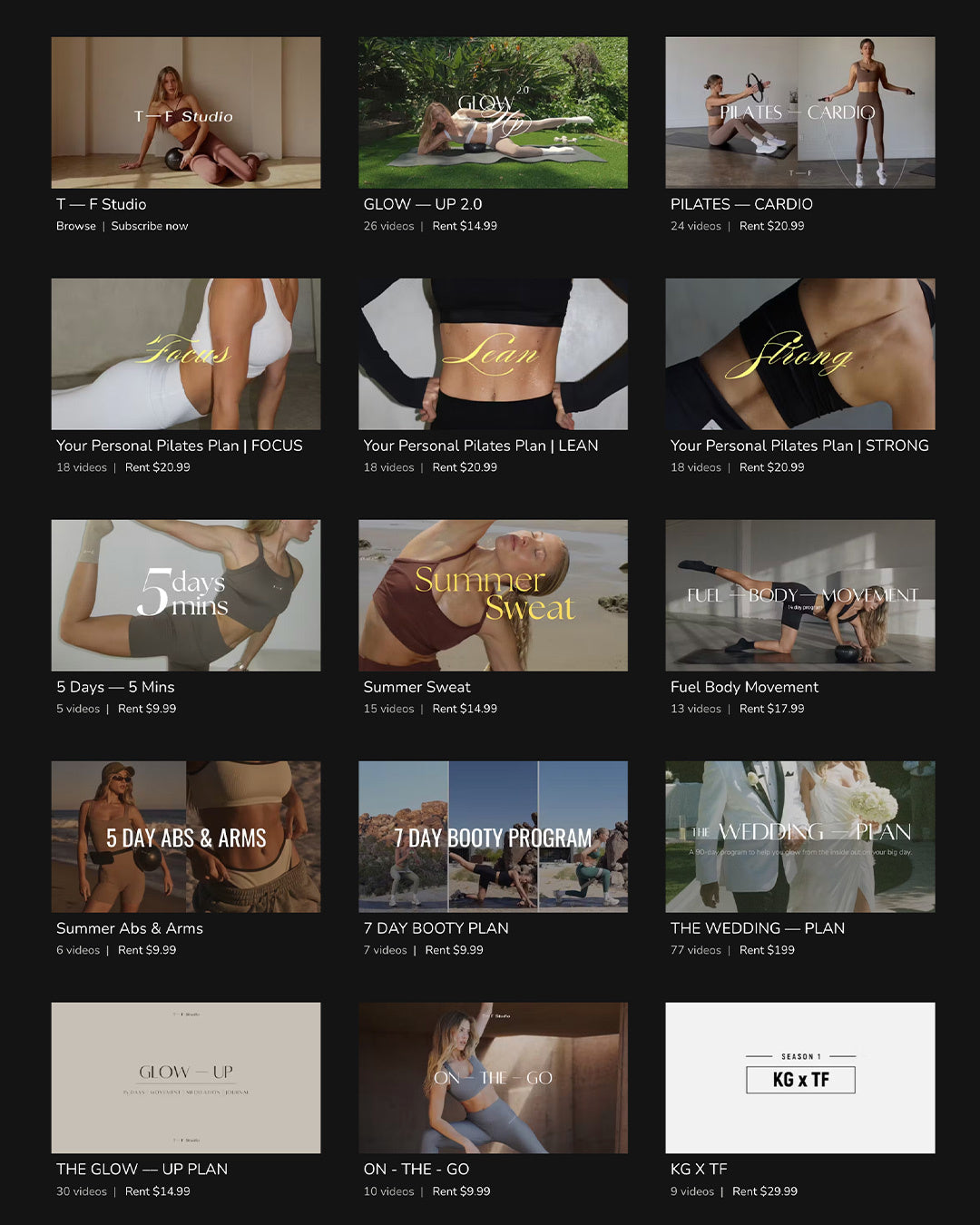Creatine + Pilates: Does it align with your goals?
Creatine has a reputation problem.
For years, it’s been marketed to male athletes chasing muscle gains, surrounded by talk of bloating, bulk, and gym culture. If you’re someone who prefers low-impact, intentional workouts like Pilates, creatine might feel completely off-brand.
But the truth is, creatine may be one of the most misunderstood and most beneficial supplements available to women.
Before you write it off, here’s what the research actually says.
Creatine Is One of the Most Researched Supplements in the World
Among all gym supplements, creatine has been studied the most extensively. Over 500 peer-reviewed studies have explored its effects on strength, recovery, cognition, and overall performance. Most of these studies have used creatine monohydrate, the form that has shown consistent results across the board.
Creatine is not a gimmick or a fad. It is backed by decades of science, making it one of the few supplements you can confidently say is both effective and safe.
Historically, the research focused on men. But recent studies are shifting that narrative and showing how creatine can offer unique benefits for women too, especially those focused on strength, stability, and longevity.
What Exactly Is Creatine and What Does It Do?
Creatine is a compound made from three amino acids: arginine, glycine, and methionine. Your body produces it naturally, and you can also get it in small amounts from food like red meat and fish.
Once inside the body, creatine is stored mostly in your muscles, where it helps generate quick bursts of energy. It supports the production of ATP, your body’s main energy source, particularly during short, repeated efforts.
For Pilates, that could mean more strength in core holds, more stamina in controlled leg movements, and quicker recovery between sessions.
Benefits of Creatine for Women Who Do Pilates
1. Improved Strength and Endurance
A 2022 review in Nutrients found that creatine supplementation improved strength and performance in women doing resistance or bodyweight training. This includes the kind of slow, intentional strength-building work you do in Pilates.
You may notice more energy during longer classes, stronger form in planks and bridges, and reduced muscle fatigue afterward.
2. Lean Muscle Gains Without Bulk
One of the most persistent myths is that creatine causes women to look bulky. The evidence says otherwise. A 2021 systematic review in Sports Medicine confirmed that creatine can increase lean muscle mass without adding visible size or excessive weight.
Instead of bulk, think more definition, improved posture, and better muscle engagement during every rep.
3. Support for Bone Health
Women are more prone to bone density loss as they age. Creatine has been linked to improved bone mineral density, especially when combined with resistance-based exercise. Pilates, which uses props and your own body weight for resistance, is a great match for this benefit.
4. Mental Clarity and Mood Balance
Creatine is also stored in the brain and helps support mental performance. A 2020 study found that women who took creatine reported better cognitive function and reduced fatigue, especially during periods of high stress or hormonal fluctuation.
This means better concentration during class, improved mind-body connection, and a more balanced mood overall.
Common Concerns and Side Effects
Creatine has been studied for decades and is considered very safe. Still, some concerns come up frequently.
Water retention: Creatine can cause water to be pulled into your muscle cells. This is not the same as digestive bloating, and it usually disappears as your body adjusts.
Digestive upset: Some people experience mild discomfort when taking creatine without food or in large amounts.
To avoid this, start with 3 to 5 grams per day, ideally with a post-workout meal or smoothie. There is no need to "load" or cycle creatine. The key is consistency.
Women tend to have lower baseline creatine levels than men. This makes supplementation both effective and well tolerated, especially when taken in the right dose.
How to Use Creatine Based on Your Goals
For Daily Wellness and Recovery
Take 3 grams per day with food. This supports general energy, recovery, and cognitive function.
For Lean Strength and Muscle Support
Take 3 to 5 grams per day after your Pilates session or with a recovery smoothie that includes protein and healthy carbs. This combination helps with absorption and muscle repair.
For Cognitive Benefits
Take a consistent daily dose, even on rest days. Many women report clearer thinking, fewer energy crashes, and better emotional stability after a few weeks of regular use.
Always drink plenty of water throughout the day to support optimal muscle hydration and cellular function.
Best Creatine Brands for Women
Choose brands that use pure creatine monohydrate with no added fillers. Here are some that meet high standards for safety and transparency:
-
Thorne Creatine
NSF Certified, micronized for better absorption -
Klean Athlete Creatine
Informed-Sport Certified, minimal ingredient list -
Naked Creatine
Pure, unflavored, third-party tested -
MyProtein Creatine Monohydrate (Creapure®)
Known for quality and purity, made with Creapure®
Final Thoughts
So what's the right answer? Well, if you're consistent with your Pilates practice and focused on long-term wellness, creatine might be worth exploring. Not because it’s trending, but because it could support the work you're already doing.
It has the potential to help you move with more power, recover faster, and feel more energized throughout your day. But that doesn’t mean it’s for everyone.
You shouldn't take any supplement just because it's popular. The real question is whether it aligns with your goals, your body, and the way you like to move. Every body is different, and there’s no one-size-fits-all approach to feeling your best.
As always, speak to a healthcare provider before adding something new to your routine — especially if you're pregnant, breastfeeding, or managing a medical condition.
Strong looks different on everyone. What matters most is what works for you.






